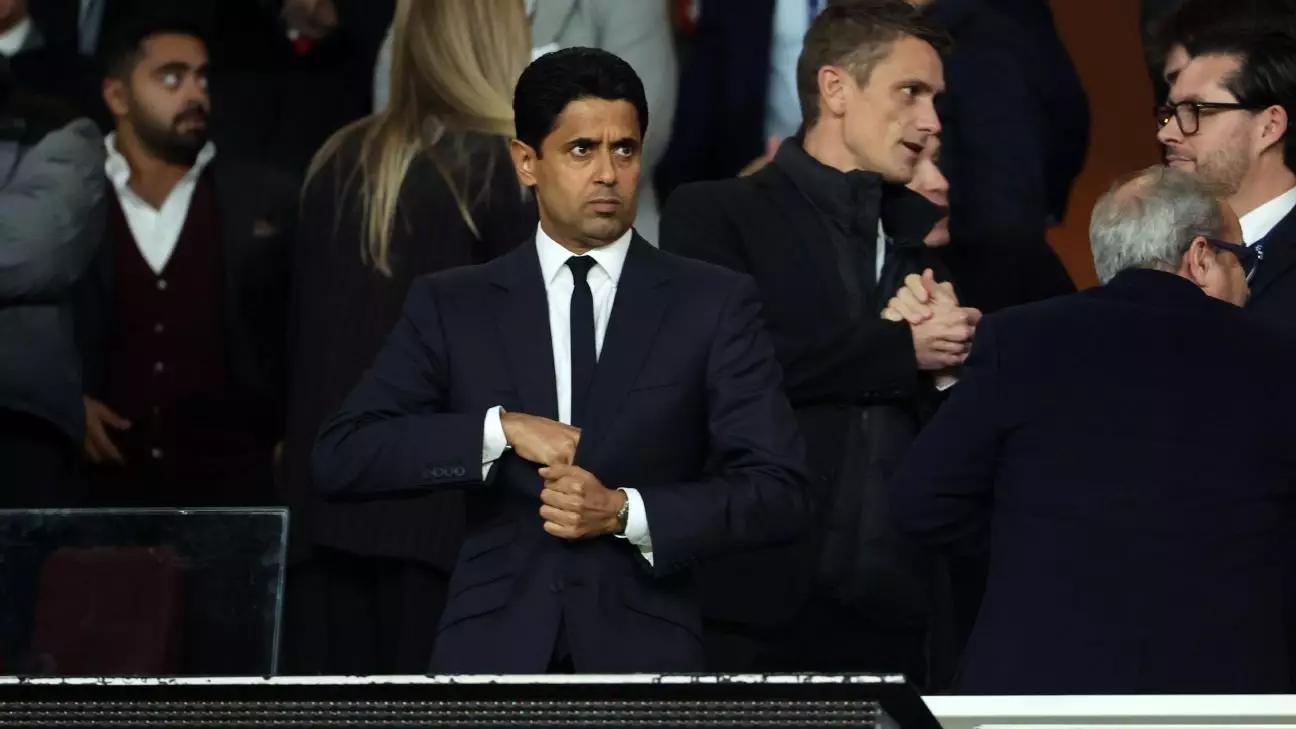The announcement of the new format for the FIFA Club World Cup has sparked a significant amount of discussion and controversy within the football community. Paris Saint-Germain’s president, Nasser Al-Khelaïfi, has taken a firm stand in favor of the revamped tournament, scheduled to launch in June 2025 in the United States. His comments at a recent European Club Association (ECA) assembly reflect both the excitement surrounding the event and the pushback it has received from players and clubs alike. Let’s delve deeper into this situation, exploring its implications for the clubs involved and the balance between player welfare and commercial interests.
The FIFA Club World Cup, featuring 32 teams and extended to four weeks of intense competition, represents a bold shift in the structure of international club football. Al-Khelaïfi’s assertion that clubs are eager to participate in the tournament is aimed at countering criticisms that it may add undue strain to an already packed football calendar. The inherent stress of a lengthy tournament, particularly for clubs like Manchester City and Real Madrid whose seasons could stretch into 11 months, raises valid concerns about player fatigue and injury risk.
However, this structural change could also be perceived as a necessary evolution in the sport, which continually seeks new avenues for revenue and fan engagement. The global audience for football is growing, and the introduction of a larger-scale tournament is a recognition of this burgeoning market. Al-Khelaïfi’s comments urge clubs to adapt to this new paradigm or risk remaining irrelevant in the eyes of both fans and financial backers.
A point of contention in Al-Khelaïfi’s remarks is the suggestion that the motivations behind participating in the Club World Cup are not solely financial. While he emphasizes the importance of protecting player welfare, it is difficult to ignore the financial implications at play. With rising player salaries and a finite income from competitions, clubs are increasingly pressured to find sources of revenue that may offset these costs.
This tournament, positioned to be a lucrative venture, potentially addresses this need for increased earnings. The argument that clubs will recoup money lost due to escalating expenses may resonate with stakeholders, yet it raises questions about the sustainability of this model, particularly if it leads to player burnout and hampered performance on the field.
Ongoing debates surrounding the football calendar are not new; they are a recurring issue impacting the sport. Al-Khelaïfi acknowledges this concern, advocating for a collaborative approach among all stakeholders to navigate timing and scheduling conflicts effectively. His comments hint at the necessity of dialogue and compromise to ensure that club tournaments do not unduly cramp player schedules, thereby affecting the overall quality of play.
In this light, the experiences of clubs such as Manchester City, who faced denial from the Premier League to adjust their schedule to accommodate for the Club World Cup, underscore the complexities of managing multiple competitions. Such rigid scheduling can lead to friction between league commitments and international duties, ultimately challenging the endurance and performance of players throughout an exhaustive season.
Despite the challenges cited by club executives, including Al-Khelaïfi’s own admission surrounding the difficulties in preparations for the Club World Cup, there remains an air of optimism about the tournament’s potential impact. The ECA’s belief in the long-term viability and economic benefits of the tournament underscores a consciousness of evolving football’s landscape in a fan-centric manner.
The key to balancing this excitement with player welfare will lie in agreement and understanding among leagues, clubs, and governing bodies. If navigated properly, these new ventures could enhance the global football experience for fans while ensuring players remain protected from the strains of an overcrowded schedule.
As we approach the 2025 launch date, the football community must keep its focus on holistic progress—where the excitement generated by new competitive formats does not come at the expense of those who bring the game to life every week. The FIFA Club World Cup promises to be a landmark event, and with the right oversight and support, it could usher in a new era for club football that aligns both commercial and athletic imperatives.

Leave a Reply